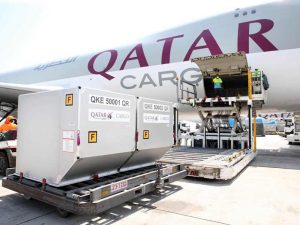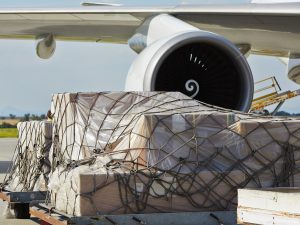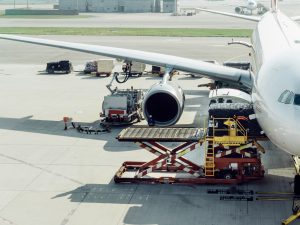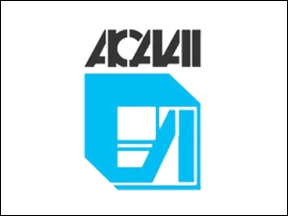Octoloop, powered by CargoFlash InfoTech, has completed one year of partnership with Qatar Airways Cargo, transforming the way air cargo bookings are managed. Mark Drusch, Chief Officer Cargo at Qatar Airways, reflects on the collaboration, “Octoloop has introduced unparalleled efficiency, transparency, and simplicity to the cargo booking process, making it remarkably easier for airlines and cargo agents alike.” This milestone demonstrates that digital transformation is not just shaping the present—it is defining the future of air cargo. We thank Qatar Airways Cargo for their trust and look forward to setting new benchmarks in air cargo digital sales together.
Read More »DDP Face of the Future at ICA 2025 is Fletcher Samuel
Fletcher Samuel, AGM & Senior Lead, Cargo Business, BIAL was honoured with the DDP Face of the Future Award at the recently concluded India Cargo Awards 2025 in New Delhi. Samuel plays a key role in driving strategic initiatives and innovation in air cargo operations. With a focus on improving efficiency and building collaborative partnerships, he has led multiple key projects that have enhanced cargo movement and infrastructure at Bangalore airport. He also serves as the Chairman, ACFI, BLR Chapter, and contributes to industry-wide dialogue and development. Fletcher has rich experience of working across logistics hubs, such as Singapore, Hong Kong, Guangzhou, Mumbai, Delhi, and Hyderabad, which gave him a global perspective on cargo ops and airport logistics.
Read More »ACAAI calls for transforming trade amid global constraints
Ahead of 49th ACAAI Annual Convention this November, Vikram Kumar, VP, Air Cargo Agents Association of India (ACAAI) said, “By harnessing digital technologies, and data-driven insights etc, stakeholders can overcome physical and policy barriers, enhance transparency, and build resilience.” He said, “The theme calls on the industry to turn constraints into opportunities — altering trade by rethinking processes, strengthening partnerships, and driving sustainable, technology-enabled growth.” The 49th ACAAI Convention’s theme, ‘Connected yet Constrained: Transforming Trade Amidst Rising Barriers’, is thought-provoking. It captures the paradox confronting global trade today, while digitalisation, automation, and real-time data have made the world more connected than ever. It highlights the need for the air cargo industry to view connectivity not merely as a tool for efficiency but as a catalyst for transformation.
Read More »Proposal to launch cargo flights from Indore airport
Devi Ahilyabai Holkar Airport (Indore) is set to enhance its air cargo operations by launching dedicated cargo flights in collaboration with local trade and industrial bodies. The proposal was discussed during the recent Airport Advisory Committee meeting, chaired by MP Shankar Lalwani. Airport Director Vipin Kant Seth said the initiative aims to boost regional exports and strengthen domestic freight connectivity across central India., senior officials, and representatives from various industry associations reviewed ongoing infrastructure projects and future development plans. He noted the introduction of dedicated cargo services would enable faster, more efficient movement of goods to key domestic and international markets.
Read More »Cargo volumes shoot up 4% in Q3 2025 despite price dip
Worldwide air cargo volumes shot up by 4 per cent in Q3 2025 compared with the same period last year, even as average global rates dipped 3 per cent year-on-year. Cumulatively, year-to-date tonnages are up 4 per cent YoY, while overall air cargo rates for 2025 remain broadly in line with the first nine months of 2024, reflecting consistent demand amid evolving market conditions. Chargeable weight in three months ending September continued the year’s pattern of steady quarterly growth, following increases of over 4 per cent in Q2 and over 3 per cent in Q1.
Read More »Reshma Zaheer is DDP Game Changer at ICA 2025
Reshma Zaheer, COO, TT Logistics & Cargo, was presented with DDP Game Changer Award at the recently concluded India Cargo Awards 2025 in New Delhi. With over three decades in the air cargo industry, she brings depth of experience as well as forward-looking approach to leadership. Ensconced as the COO for the past 15 years, she has expanded the company’s GSSA ops and established global capability centres that deliver long-term strategic value to partners and customers.
Read More »Kuehne+Nagel launches new air logistics gateway in Bengaluru
Kuehne+Nagel has opened new air logistics gateway in Bengaluru underscoring its commitment to adapt quickly to shifting market conditions and evolving customer requirements, while expanding its global network. The gateway manages consolidation and deconsolidation of cargo, streamlines customs processes, and provides temperature-controlled handling to ensure reliability and efficiency. Integrated with company’s digital platforms, including the customer booking tool myKN. Bengaluru was selected for its connections to hubs, such as Frankfurt, Hong Kong, Dubai, and Chicago. Its role as a centre for technology and trade, and its increasing relevance in cross-border logistics. With access to trade lanes spanning Europe, Asia Pacific, the Middle East and Africa, and North America, the new gateway will serve high-growth sectors such as high-tech, healthcare, automotive and new mobility.
Read More »ACAAI to focus on transforming trade amidst barriers
The Air Cargo Agents Association of India (ACAAI) is all set to host its 49th Annual Convention in Bali, Indonesia. “Its theme, ‘Connected yet constrained: Transforming trade amidst rising barriers,’ captures the realities of global commerce today,” said CK Govil, Immediate Past President, ACAAI. He said, “The world is digitally and economically linked than ever before, yet challenged by trade restrictions, geopolitical tensions, and shifting regulatory frameworks. These constraints compel the logistics and air cargo industry to rethink traditional models and embrace transformation through innovation, technology, and collaboration.” He added, “The theme reflects the duality of our times — where connectivity enables opportunity, but constraints demand adaptability. For India, this signifies an opportunity to position itself as a reliable global logistics hub, capitalising on its strategic strengths and policy reforms.”
Read More »DP World begins new reefer rail service from HYD to JNPA
DP World has launched first dedicated reefer rail freight service from Thimmapur, Hyderabad to Nhava Sheva (JNPA), in collaboration with Ocean Network Express (ONE). This solution has enabled the first-ever refrigerated rail movement from DP World Thimmapur ICD to Nhava Sheva, providing a customised logistics offering for the region’s pharma exporters. By shifting cargo from road to rail, the service ensures vessel connectivity. By consolidating cargo in a train, rail ensures the entire volume reaches the port aligned with vessel schedules.
Read More »Ahluwalia gets DDP Trailblazer Award at ICA 2025
Vikramjit Singh Ahluwalia, MD, Air Logistics Group India, go the DDP Trailblazer Award at the recently concluded India Cargo Awards 2025 in New Delhi. With 30 years of experience in global aviation cargo and logistics, Ahluwalia is recognised for his vision and execution. He he has been instrumental in launching and establishing operations for leading international carriers such as Bmi Cargo, Ocean Airlines, Jade Cargo International, All Nippon Airways, Garuda Indonesia, Brussels Airlines, Alitalia, American Airlines, DHL Aviation, and Sichuan Airlines across India.
Read More » Cargo Breaking News
Cargo Breaking News









